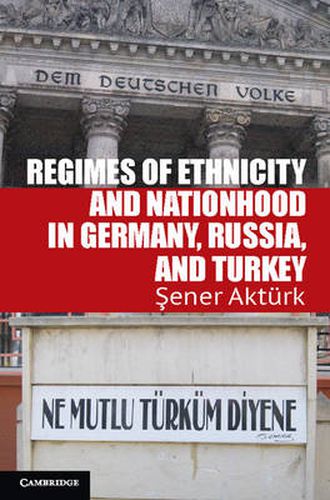Readings Newsletter
Become a Readings Member to make your shopping experience even easier.
Sign in or sign up for free!
You’re not far away from qualifying for FREE standard shipping within Australia
You’ve qualified for FREE standard shipping within Australia
The cart is loading…






Akturk discusses how the definition of being German, Soviet, Russian and Turkish radically changed at the turn of the twenty-first century. Germany’s ethnic citizenship law, the Soviet Union’s inscription of ethnic origins in personal identification documents and Turkey’s prohibition on the public use of minority languages, all implemented during the early twentieth century, underpinned the definition of nationhood in these countries. Despite many challenges from political and societal actors, these policies did not change for many decades, until around the turn of the twenty-first century, when Russia removed ethnicity from the internal passport, Germany changed its citizenship law and Turkish public television began broadcasting in minority languages. Using a new typology of ‘regimes of ethnicity’ and a close study of primary documents and numerous interviews, Sener Akturk argues that the coincidence of three key factors - counterelites, new discourses and hegemonic majorities - explains successful change in state policies toward ethnicity.
$9.00 standard shipping within Australia
FREE standard shipping within Australia for orders over $100.00
Express & International shipping calculated at checkout
Akturk discusses how the definition of being German, Soviet, Russian and Turkish radically changed at the turn of the twenty-first century. Germany’s ethnic citizenship law, the Soviet Union’s inscription of ethnic origins in personal identification documents and Turkey’s prohibition on the public use of minority languages, all implemented during the early twentieth century, underpinned the definition of nationhood in these countries. Despite many challenges from political and societal actors, these policies did not change for many decades, until around the turn of the twenty-first century, when Russia removed ethnicity from the internal passport, Germany changed its citizenship law and Turkish public television began broadcasting in minority languages. Using a new typology of ‘regimes of ethnicity’ and a close study of primary documents and numerous interviews, Sener Akturk argues that the coincidence of three key factors - counterelites, new discourses and hegemonic majorities - explains successful change in state policies toward ethnicity.